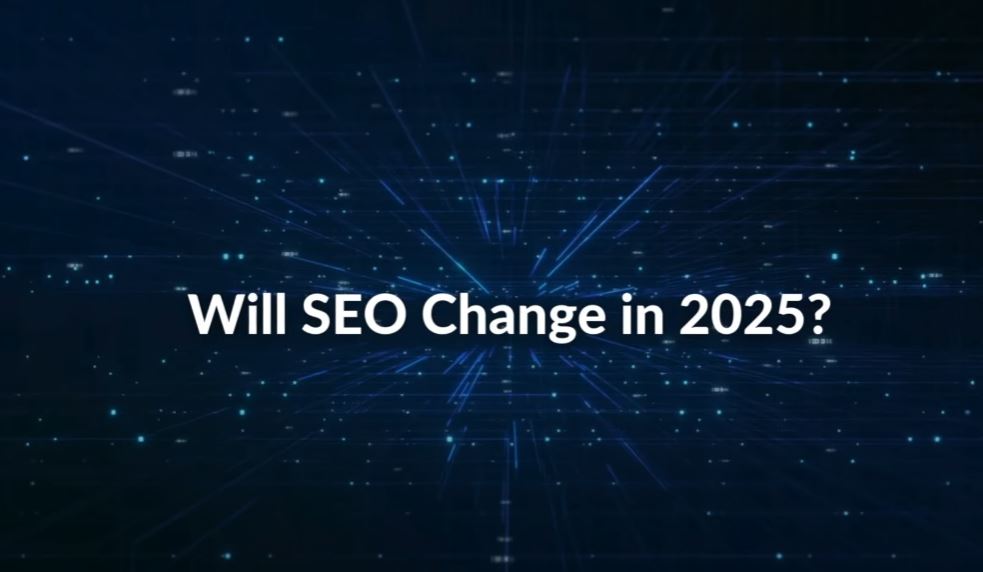As we head into 2025, the world of SEO is poised for significant changes. Nathan Gotch, founder of Gotch SEO Academy and Rankability, and author of The SEO Entrepreneur, has shared his expert predictions for the future of SEO. Based on his decade of experience, Gotch outlines seven key trends that will shape how SEO is practiced in the coming year. Let’s dive into his insights and what they mean for SEO professionals.
1. Less Organic Clicks
Gotch's first prediction is a decline in organic clicks. He notes that Google is increasingly steering users away from traditional search results through mechanisms like AI overviews, excessive ads, and SERP features that push organic listings further down.
“You should prepare for less organic search traffic even if your rankings are solid. Google is still the best organic traffic source, but the landscape is shifting.”
Even with reduced clicks, Google remains a more reliable traffic source than social platforms like X or LinkedIn. Social platforms often penalize content that includes external links, making it harder for users to navigate to your website. In contrast, Google Search Console lets you track organic clicks and CTR, offering invaluable data for SEO.
2. More AI Overviews
AI overviews, which currently dominate long-tail informational queries, are expected to expand to commercial and local queries as well.
“If Google continues to cite its sources in the AI overviews, I don’t believe it will be too damaging to organic traffic. They function similarly to featured snippets.”
However, Gotch warns that many users may consume the information directly from the AI overview without ever clicking through to the source, especially on mobile devices. This behavior could reduce the overall traffic to websites, particularly for simple queries.
3. Ads in AI Overviews
The third prediction is that ads will eventually be integrated within AI overviews. Google’s business model relies heavily on advertisers, so it’s only a matter of time before paid placements become a part of AI-driven search results.
“Google will always prioritize its advertisers. Expect to see ads in AI overviews soon.”
4. Search GPT and Perplexity as Viable Competitors
For the first time in its history, Google may face serious competition with the rise of platforms like Search GPT and Perplexity. These AI-based search engines could disrupt Google's dominance if they integrate well with tools like ChatGPT.
“Don’t fear this change. SEO is not just about Google; it’s about optimizing for any search engine, and that includes learning how to optimize for large language models (LLMs).”
Gotch emphasizes the importance of understanding natural language processing (NLP) and search engines’ use of NLP to interpret content. He even demonstrates how he uses NLP to optimize content across multiple platforms, such as blog posts and YouTube videos.
5. Google’s Market Share Will Stay Above 85%
Despite the competition, Gotch believes Google’s market share will remain over 85% in the traditional search market. With nearly unlimited resources, Google isn’t going down without a fight.
“Google has nearly unlimited resources to counter competitors' moves, so don’t expect it to lose its dominant position anytime soon.”
6. Decreased Focus on UGC-Driven Results
Google’s search results are often filled with outdated user-generated content (UGC) such as forum threads and Reddit posts. Gotch predicts that Google will reduce the prominence of UGC in its search results, focusing instead on higher-quality content.
“Google search results are loaded with outdated forums and thin Reddit threads. If Google cares about the quality of its results, it will turn the dial down on UGC.”
7. Website and Brand Authority Will Be Critical
With the rise of AI-generated content, Google will need a way to filter through the noise, and website authority will play a crucial role. Backlinks and branded searches will continue to be key indicators of a site’s trustworthiness.
“Anyone can create decent content with tools like ChatGPT, so Google needs a way to determine what should rank. Website authority and branded searches will be critical.”
Backlinks alone won’t be enough. Brands must also cultivate branded searches and strong user signals to avoid looking “sketchy” in Google’s eyes. Gotch points to studies showing a strong correlation between brand authority and SEO performance.
“Websites with both backlinks and brand authority survive Google’s algorithm updates, while those without branded searches struggle.”
He recommends a well-rounded content marketing strategy that spans multiple platforms, driving users to search for your brand directly.
The Decline of Pure SEO Agencies
The final prediction revolves around the future of SEO agencies. Gotch believes agencies that focus solely on SEO will struggle. To thrive, they’ll need to offer broader search marketing strategies, including both organic and paid search, as well as conversion rate optimization (CRO).
“To keep up with the times, SEO agencies must expand their offerings. Traffic alone isn’t enough; it needs to convert.”
In 2025, successful SEO agencies will integrate a holistic approach to search marketing, ensuring that the traffic they generate leads to meaningful results.
Nathan Gotch’s 2025 SEO trend predictions offer a glimpse into the future of search marketing. To stay competitive, SEO professionals must adapt to changes in organic traffic, new AI features, and evolving search engines. By focusing on brand authority, leveraging NLP, and offering broader strategies, you can continue to drive meaningful results in the ever-changing SEO landscape.
If you want to dive deeper, Gotch recommends checking out his next video on the most comprehensive SEO checklist for 2025.

